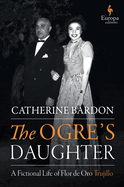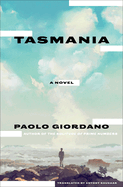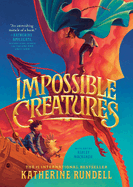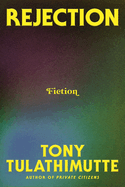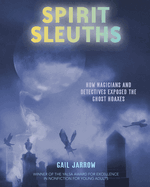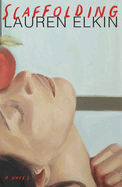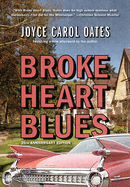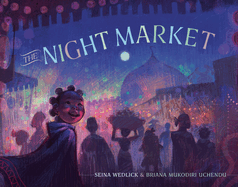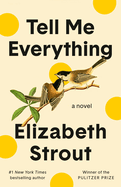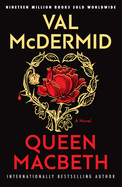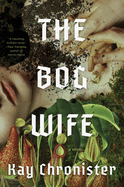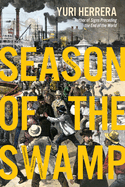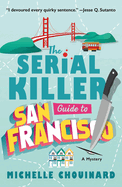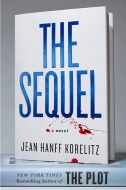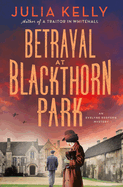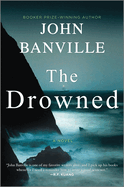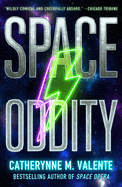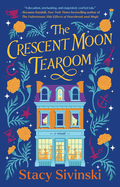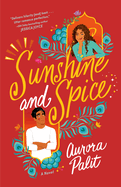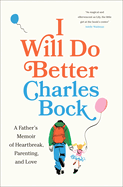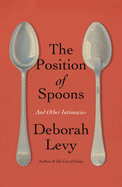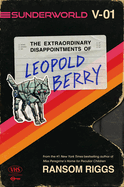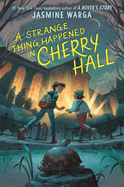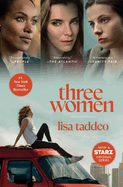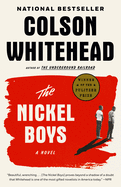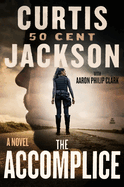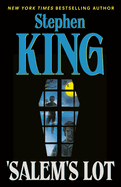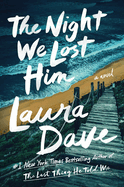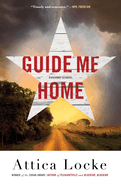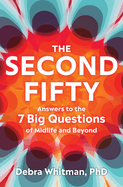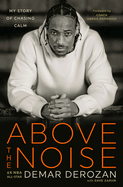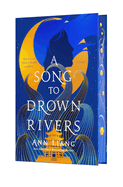Friday, October 4, 2024
In this week's issue, we review several magnificent works of fiction that fearlessly probe an array of harsh realities. The Ogre's Daughter by Catherine Bardon is a "deft" and "searing" imagining of how a ruthless dictator's daughter might have lived; while Tasmania by Paolo Giordano showcases "propulsive prose and intellectual rigor" in its study of a journalist working on a book about the atomic bomb; and Scaffolding by Lauren Elkin considers "the darker sides of human nature" with "narrative boldness." Plus, with Impossible Creatures, Katherine Rundell jumpstarts "an exciting, imaginative, and thrilling" middle-grade fantasy series about a land of mythical creatures and the children charged with saving the source of its magic.
And for The Writers' Life, Tony Tulathimutte, recently longlisted for this year's National Book Award, handles rejection with panache and remarks on how his new collection of linked short stories developed from "a kind of centaur" of combined writing forms into what it is today: a svelte work of both humor and seriousness.
The Ogre's Daughter
by Catherine Bardon, transl. by Tina Kover
In the searing and aptly titled The Ogre's Daughter, her first novel to be translated into English, French author Catherine Bardon (Les Deracines) imagines the tragic life of Flor de Oro Trujillo, the first daughter of Rafael Trujillo, the brutal and ruthlessly ambitious dictator of the Dominican Republic, to survive childhood. Flor is born in 1915 in the Dominican Republic. When she is young, her father is an army officer, but he realizes his bloody plans to attain power and the presidency by 1930. His reign lasts 31 years, and Flor spends every one of them wrestling with the love and hate she harbors for "El Jefe," a ranking member in history's pantheon of bloodthirsty tyrants.
In Bardon's deft hands, Flor is a lost soul orbiting her father, watching helplessly as she becomes the oldest sibling of her father's increasingly large family of legitimate and illegitimate children. When she shows the smallest signs of rebellion, El Jefe punishes her repeatedly with exile and emotional alienation. Bardon follows Flor's love life (she marries nine times) and her escalating problems with alcoholism and anorexia, portraying them as temporary escapes from Flor's circumscribed life. The historical lowlights of Trujillo's reign are presented subtly, as if they are accidents along the road that Flor cranes her neck to look at briefly before driving on. In The Ogre's Daughter, Bardon shows a bleak but fiery simulacrum of the historical Flor de Oro, and pays tribute to a nation that was just as damaged by the "implacable dictatorship" of "the Ogre of the Caribbean." --Peggy Kurkowski, book reviewer and copywriter in Denver
Discover: This fictionalized depiction of the life of Flor de Oro Trujillo, daughter of dictator Rafael Trujillo, vividly evokes a love-starved woman's attempts to flee the golden cage her father constructs.
Tasmania
by Paolo Giordano, transl. by Antony Shugaar
For anyone looking to have a lighthearted conversation, don't chat up a journalist who writes about the climate crisis and is working on a book about the atomic bomb, especially if that journalist is also justifiably freaked out about worldwide terrorism and rising authoritarianism. In other words, avoid Paolo, the narrator of Tasmania, a brilliantly unsettling, semiautobiographical novel by Paolo Giordano, translated from the Italian by Antony Shugaar. And to those who wonder what a natural splendor like Tasmania has to do with a book about global threats: as one character puts it, the Australian island state would be a great place to buy land in case of apocalypse. How's that for a tourism slogan?
In one magnificently conceived sequence after another, Giordano charts Paolo's intellectual and personal journey, starting with his 2015 trip to Paris for a United Nations climate conference, which he convinced the newspaper Corriere della Sera to let him cover so he could escape his travails. These include his and his wife Lorenza's inability to have a child after three years of "blind determination." Another is his increasing obsession with the attacks on Hiroshima and Nagasaki. Other relationships increase his distress, including college friend Giulio, who needs Paolo's help during a nasty divorce, and the physicist Novelli, who studies climate models yet cheerily points out that there are "a trillion far more distinctive and idiosyncratic threats" than climate change. Gloom and doom can be hard to take, but Giordano's propulsive prose and intellectual rigor make this novel a thrilling experience. --Michael Magras, freelance book reviewer
Discover: Tasmania is Paolo Giordano's brilliant novel about a journalist obsessed with personal and global travails, including friction in his marriage, climate change, and the rise of authoritarianism.
Rejection
by Tony Tulathimutte
No one, whether an aspiring author or a love-struck romantic, wants to be rejected. The poor souls in Rejection, Tony Tulathimutte's thrilling collection of seven interrelated stories, encounter nonacceptance in various painful forms. The self-described feminist of "The Feminist" assumes women keep rejecting a catch like him, with his "academic achievement in his Gender Studies major," because he's narrow-shouldered, "the most oppressed subaltern group." A 20-something woman in "Pics" has a one-night fling with a longtime friend who possesses "an era-definingly huge dick." When he rejects her, she gripes about the injustice with the women in her group chat.
Think that's explicit? Hang on, because it gets even more daring, starting with "Ahegao, or the Ballad of Sexual Repression," in which Kant, a gay Thai American virgin in his early 30s, begins his quest to "build his résumé" and find guys to have sex with, a pursuit complicated by unusual proclivities. In "Our Dope Future," a "serial entrepreneur" who's "totes family-oriented" writes a Reddit-like post about lifelong plans that aren't as noble as he thinks. The book takes a sharp metafictional turn with "Main Character," an account of Botgate, "a years-long series of concerted hoaxes involving one or more users whose true identities and motives have yet to be conclusively determined," and written by Bee, Kant's sister. Online culture, sexuality, allyship, and more come in for scrutiny, much of it hilarious, all of it unsettling. With Rejection, Tulathimutte (Private Citizens) has written one of the most brilliantly funny works of fiction since Paul Beatty's The Sellout. Reject it at one's peril. --Michael Magras, freelance book reviewer
Discover: Rejection, Tony Tulathimutte's brilliant septet of connected stories, presents characters who have suffered various forms of nonacceptance and analyzes online culture, sexuality, and more.
Scaffolding
by Lauren Elkin
It's hard to resist a novel that explores desire, psychoanalysis, and feminism in unbridled French-literature style. Scaffolding is the first novel from Lauren Elkin, author of Flâneuse and Art Monsters, and readers should buckle up, because Elkin doesn't skirt the polite edges.
In 2019, Anna is a psychoanalyst in Paris, taking time off to process a miscarriage by doing anything and everything but thinking about it. With her husband working in London, she renovates her apartment, ponders the nature of desire, and spends an increasing amount of time with her neighbor Clémentine, a young woman involved in a feminist group protesting violence against women.
In 1972, Florence and her husband, Henry, live in the same Paris apartment that Anna will move into decades later. Florence wants a child but Henry is, unfortunately, an infantile egotist. He argues against having a child, telling Florence, "But you have a baby, remember?" In the meantime, Florence renovates the apartment. The novel's threads of connection across the decades are delightful, as when Florence puts up brown wallpaper that Anna calls "horrible" and rips out.
Elkin's themes are far ranging, complex, and fearlessly probe the darker sides of human nature as both women push at the concepts that bind relationships such as the value of fidelity. Elkin questions the nature of desire, considering possibilities like whether it "stems from foundational loss, the moment of separation from our mothers." Her narrative boldness surfaces intriguing ideas about the psyche. Sometimes, as Florence argues in defense of her brown wallpaper, "It's more honest to make it ugly." --Carol Caley, writer
Discover: This irresistible novel follows two couples who occupy the same apartment decades apart and explores desire, psychoanalysis, and feminism in unbridled French-literature style.
Broke Heart Blues
by Joyce Carol Oates
The reissue of Broke Heart Blues, originally published in 1999, reintroduces readers to the breathtaking novel and includes a self-reflective afterword by its author, award-winning writer Joyce Carol Oates (Hazards of Time Travel). Oates's contemporary classic about small-town obsession and nostalgia in the wake of a true-crime scandal will appeal to today's readers perhaps even more than before.
John Reddy is only a teenager when he is tried for killing his mother's lover. Amid the trial's media circus, the local high school's swooning girls and overeager boys turn the quiet, enigmatic shooter into a heartthrob of epic proportions: the subject of speculative daydreams, the projection of personal desire, and the target of collective hero worship.
Broke Heart Blues uses its first portion to construct John Reddy as mythic vision through the collective first-person perspective of his admirers. In this prominent opening section, Oates's virtuosic control of pacing and voice constructs a tilt-a-whirl of mania, thrusting the narrative forward to the pulse of a small-town community's feverish heart. The novel's second section slows to a gentler, more grounded pace as it explores John's later life as Mr. Fix-It. While this section provides a new emotional core to the novel's tension, the final act whips the story back into a collective frenzy as Oates uses a high school reunion as a setting to probe the dark hysteria underlying seemingly innocent nostalgia. In her afterword, Oates doesn't spell out any answers to the "murder mystery" she claims the novel is. Nevertheless, she does pull back the curtain a bit for readers to take a voyeuristic peek into inspiration for the novel's dream-like world. --Alice Martin, freelance writer and editor
Discover: Joyce Carol Oates's stunning novel about one town's ramped passion for a boy accused of murder feels more resonant than ever in this reissue with a thoughtful afterword.
Tell Me Everything
by Elizabeth Strout
Pulitzer Prize-winning author Elizabeth Strout (Olive Kitteridge; My Name Is Lucy Barton) revisits Crosby, Maine, and many of the beloved characters after whom Strout has titled previous books in Tell Me Everything, a quiet, captivating novel that finds beauty and meaning in the mundane. What happens here is nothing much and, also, as its title suggests, everything: Lucy Barton, the writer, and Bob Burgess, the lawyer, take long walks together and talk. Bob agrees to represent a strange, lonely man accused of killing his mother. Lucy visits Olive Kitteridge in her retirement community, where they tell each other stories. Bob visits his brother in New York. Lucy visits her apartment in New York. Bob's ex-wife visits Maine from New York. And so on and so forth, a web of characters living out their everyday lives, at once ordinary, boring and interconnected, yet full of vim and vigor: murder mysteries and affairs and love stories and heartbreak and death and loss and a pandemic and a crumbling world and friendships and more!
"Jesus Christ," Lucy says to Olive on one of her first visits. "All these unrecorded lives, and people just live them." What Strout does so expertly in Tell Me Everything is record them, combining details so small that they might otherwise be overlooked in ways that build a compelling story of humanity in its many forms. Clear-sighted and sharp-witted, Tell Me Everything explores what it means to live a life worth living, one built within and upon relationships of all shapes and sizes. --Kerry McHugh, freelance writer
Discover: This quiet, captivating novel finds beauty and meaning in the mundane and features many of the beloved characters after whom Elizabeth Strout has titled previous books.
Queen Macbeth
by Val McDermid
In William Shakespeare's Macbeth, before the perfidy of Macbeth and his wife is revealed, the titular character is called "brave Macbeth." In Queen Macbeth, Val McDermid (The Vanishing Point; How the Dead Speak) turns her investigative powers toward reestablishing the good names of the historical Macbeths. Macbethad (Macbeth) and his wife, Gruoch, who actually reigned in 11th-century Scotland, are brought to vivid life in this brief and poignant novel.
The story opens as Gruoch and her three companions--a seer, a healer, and a weaver--have been on the run for four years, ever since the death of her husband. Gruoch's son sits on the throne, but his kingdom is threatened by Malcolm, who also poses a danger to Gruoch, because her name is "still a name men would rally behind." Written in a spare, poetic style, Queen Macbeth also periodically flashes back to when Gruoch and Macbeth met more than 20 years earlier.
Readers familiar with Shakespeare's drama will appreciate McDermid's attempts to look past the patriarchal ideas that have overshadowed what history suggests happened in medieval Scotland. Gruoch's companions are not cackling witches but intelligent, strong women who grew up as friends in her royal household. Lady Macbeth is not a desperate, bloody figure; instead, Gruoch is a powerful woman who strategized for peace alongside her husband as he united the kingdoms of Moray and Alba and created a "joint kingdom" called Scotland. Fascinating and all too believable, Queen Macbeth will have readers rethinking "the Scottish play" and its characters. --Jessica Howard, freelance book reviewer
Discover: This slim novel imagines the true history of Gruoch, wife of Macbeth, as she fights for her survival in medieval Scotland.
The Bog Wife
by Kay Chronister
Short story writer and novelist Kay Chronister (Desert Creatures) spins a terrifically creepy Appalachian fairy tale-turned-horror story in The Bog Wife. The five Haddesley siblings--Eda, Charlie, Wenna, Percy, and Nora--grew up under the thumb of their strict patriarch on bogland in West Virginia. Based on their father's word, they all believe--albeit some more worshipfully than others--that they are part of an ancestral supernatural covenant: the bog will sustain their survival, if they sacrifice their patriarch to it in exchange for a bog-wife who will bear the successor's child. But at the end of their father's life, once they lower him into the bog to his death, the children are disturbed when no bog-wife appears.
Like the rest of Chronister's oeuvre, The Bog Wife offers a lavishly imaginative world that is equal parts grotesque and beautiful. The Bog Wife luxuriates in the wet peat and lush vegetation of an environment that may be fast disappearing, yet is nonetheless still seeping, sucking, and blooming. Chronister's attention to this particular setting's detail opens the novel up to generative eco-critical readings. Rather than coming off as sanctimonious, however, The Bog Wife embraces the uneasy moral and aesthetic landscape of the gothic haunted house trope.
But who must stay and who can escape the haunted house that is the bog? While the bog world is expansive, Chronister still leaves room to dig deep into each of her five protagonists, a rare feat. As the siblings navigate this mutable and dangerous landscape, readers are left to contemplate the nature of covenants and the legacies they impose on future generations. --Alice Martin, freelance writer and editor
Discover: Kay Chronister's The Bog Wife, as atmospheric as it is thoughtful, will delight fans of Karen Russell and Angela Carter alike in its marriage of eco-speculative fiction and gothic horror.
Season of the Swamp
by Yuri Herrera, transl. by Lisa Dillman
By 1853, Benito Juárez had served as judge, deputy, and governor of the state of Oaxaca, but he would not become Mexico's first indigenous president until after a period of exile. Among other locations, he spent 18 months in exile in New Orleans, a time about which relatively little is known. With Season of the Swamp, Mexican writer Yuri Herrera (Signs Preceding the End of the World; Kingdom Cons; Ten Planets) sheds speculative light on this brief chapter in Juárez's life. Herrera's regular English translator, Lisa Dillman, again brings a precise ear for Herrera's linguistic play to this spellbinding fictionalized history.
Besides Herrera's contextualizing prologue, the name Benito Juárez almost never appears. Instead, readers accompany an unnamed protagonist, in close third-person perspective, from his arrival through his departure. Juárez marvels at the heat, the Yellow Jack epidemic, the local culture soaked in music and dance, and the stray dogs. He is dismayed at the enslaved people, referred to as "the captured," sold in open markets and subjugated, as in the novella's memorable opening scene. He meets with fellow exiles and political minds, makes new friends, settles in. New Orleans is beautiful and horrifying, and Herrera portrays both aspects simultaneously, with humor and lyricism.
Wordplay and a special attention to language form a persistent feature in Herrera's work. Juárez is attuned to new languages, including music and body language. A sense of wonder and play, linguistic curiosity, and a knack for being both morbid and funny, contribute to an absorbingly pleasurable read, even amid the death and tragedy. Herrera offers another brilliant novella steeped in political and historical time and place. --Julia Kastner, librarian and blogger at pagesofjulia
Discover: Yuri Herrera applies his exceptional gift for succinct, imaginative storytelling to a fictionalized history of Benito Juárez in exile in New Orleans.
Mystery & Thriller
The Serial Killer Guide to San Francisco
by Michelle Chouinard
Despite what its sensationalized title might imply, The Serial Killer Guide to San Francisco is an engrossing story about family bonds and legacy, rather than just one about seeking a multiple murderer. Michelle Chouinard (The Detective Jo Fournier series) delivers a clever mystery with appealing characters who elevate the innovative plot in this first book of a planned series.
Since she was a child, Capricorn "Capri" Sanzio has known that her grandfather William Sanzio, nicknamed Overkill Bill, was a convicted serial killer infamous for his brutality. Capri's father always refused to discuss his father, who died in prison still proclaiming his innocence. But this family history fascinated Capri and led to her choice of career: founding a successful "Killer Crime Tour" company in San Francisco, Calif. Still, Capri has long avoided doing a podcast or writing a book about her grandfather, but when her wealthy ex-mother-in-law, Sylvia Clement, announces that she's no longer going to pay tuition for Capri's daughter, Capri must consider both to raise the money. Her family history and present circumstances intersect when rising socialite Katherine Harper, and then Sylvia, are both murdered in ways similar to Overkill Bill's methods, suggesting a copycat has emerged. The murders spur Capri to take a closer look at her family, including reinvestigating her grandfather's case.
Along the way, Chouinard includes interstitials from the Killer Crime Tours' guide to San Francisco, featuring historical snippets about lurid sites in various neighborhoods around the city. Trying to prove a convicted killer's innocence might border on cliché, but Chouinard tackles the trope with a fresh energy and finds new avenues to weave it into the plot. --Oline H. Cogdill, freelance reviewer
Discover: A woman whose grandfather was a serial killer contends with the emergence of a copycat killer in this engrossing, innovative novel.
The Sequel
by Jean Hanff Korelitz
Jean Hanff Korelitz's novel The Plot was a 2021 bestseller about a bestseller; The Sequel is, that's right, The Plot's sequel. Korelitz has winking, spoofy, devilish fun with the business and ethics of novel writing in this cat-and-mouse turned mouse-and-cat literary thriller.
Anna Williams-Bonner, known to readers of The Plot as the widow of novelist Jacob Finch Bonner, is now the executor of his estate and a published author herself. She has written a novel whose storyline, a New York Times profile offers, parallels its author's own: the book charts "a brief but loving marriage, a husband's devastating suicide, and finally a slow and painful return to purpose and life." Actually, Jake was no suicide: Anna has gotten away with murder.
One day at a bookshop, where she's signing preorders of her novel, Anna receives a note suggesting that her evildoing, which has hardly been limited to killing Jake, is "not forgotten." This development sets off a tremendous plot in a novel in which a publishing industry insider tells Anna, "In general, the level of literary approbation tends to decline with the presence of an actual plot"; at another meta moment, Anna says of sequels, "They're never as good as the first book, are they?" The Sequel, which, for the record, brushes up against the brilliance of its antecedent, poses other writerly questions less explicitly, among them, who owns a story? Not in question: whether a thoroughly unlikable character can sustain readers' interest across the length of a Jean Hanff Korelitz novel. --Nell Beram, author and freelance writer
Discover: In this devilishly fun literary thriller--the sequel to The Plot--a widow who has gotten away with killing her husband learns that someone is onto her evildoing.
Betrayal at Blackthorn Park
by Julia Kelly
Julia Kelly's second Parisian Orphan mystery, Betrayal at Blackthorn Park, gives newly minted British spy Evelyne Redfern a chance to test her skills in the field, while giving readers a glimpse into the innovations and intrigue involved in winning World War II.
Kelly (A Traitor in Whitehall) sets her narrative in the fall of 1940, just as Evelyne returns to London after completing spy "finishing school" and a test mission. Evelyne is surprised to learn that her first field assignment will involve testing the security measures at Blackthorn Park, the titular manor house requisitioned by the Special Operations Executive (SOE) for the manufacture and testing of explosives. Prime Minister Winston Churchill is scheduled to visit Blackthorn soon for a weapons demonstration.
With her handler, the aggravatingly handsome David Poole, Evelyne leaves London behind for Sussex. Before she can complete her security tests, however, she finds the head of engineering at Blackthorn shot dead in his office. It looks at first glance like a suicide, but Evelyne and David aren't convinced--and as Evelyne and David interview the scientists and other staff at Blackthorn, they uncover a nest of secrets and lies. Class, education, gender, and ambition also play a role, giving multiple people motives for murder and sabotage. As Churchill's visit draws nearer, and other members of staff find themselves in danger, Evelyne must use not only her freshly developed spying skills but her considerable grit and chutzpah to catch the killer.
Tautly plotted, with layered historical detail and plenty of dry wit, Evelyne's second adventure is a satisfying mystery and a slice of (nearly) top-secret wartime history. --Katie Noah Gibson, blogger at Cakes, Tea and Dreams
Discover: Julia Kelly's second World War II mystery deftly mixes murder, sabotage, and clandestine weapons at an elegant Sussex manor house.
The Drowned
by John Banville
John Banville's The Drowned transports readers to a dour small town on the 1950s Irish coast, where one tragedy after another makes a small cast of characters reconsider what they know and value in the world they inhabit. In his established style, Banville (The Singularities; Snow; Ancient Light; Holy Orders, writing as Benjamin Black) offers a stark series of events in understated tones and with a handful of voices. These include Dublin Detective Inspector Strafford and the brilliant pathologist Quirke.
A loner who actively avoids human contact discovers a luxury motorcar, abandoned, engine still running. He approaches, against his better judgment, and winds up involved in a missing-person case, which will draw Strafford to town, even as the detective wrestles with his own relationships: an estranged wife, a much younger girlfriend, and ever-complicating ties to Dr. Quirke. "We have one thing in common, at least," Quirke quips to Strafford. "Death." Death is an obvious theme, not only in the two characters' professional lives but throughout Banville's troubled setting.
Enriched by Banford's attention to detail, the narrative grows more compelling in its telling by these and other characters, each suffering more or less alone even when they are married, partnered, or set next to immediate family. The Drowned is slow building, sedately paced, and grim, but wickedly absorbing. By the mystery's denouement, some readers will have guessed the perpetrator's identity, but it is less that identity and more the psychology of it that is Banville's final blow. Through these intricacies and its murky sense of foreboding, this inexorable novel will continue to advance Banville's considerable reputation. --Julia Kastner, librarian and blogger at pagesofjulia
Discover: A recluse discovers an abandoned car and winds up involved in a missing-person case with Strafford and Quirke, who are back at work in this novel of secrets and quiet desperation.
Science Fiction & Fantasy
Space Oddity
by Catherynne M. Valente
With Space Oddity, Catherynne M. Valente returns to the Eurovision-inspired interstellar setting of her 2018 novel, Space Opera, for a high-flying, fast-talking sequel that's a multiplanetary road trip through space, time, and truly excellent drum solos.
Decibel "Dess" Jones and Mira Wonderful Star are on an interstellar tour to celebrate their big win at the Metagalactic Grand Prix, a universal song contest. Okay, technically they finished 10th, but their performance convinced the galaxy not to exterminate humanity. Dess has a case of existential angst over his constant proximity to Mira, his formerly dead lover who's now alive and 22 years old while Dess is "hip-checking his own upper decades." Mira, "freshly scooped from the timestream by an interdimensional red panda named Öö," can't exactly get on with this new life since the universe yanks her back to the site of her death every hour or so. Then Dess orders their spaceship to take them "somewhere cool." The ship obliges by finding an uncontacted civilization, putting Dess and Mira on the spot to make the first connection and mentor their less-than-gifted Metagalactic Grand Prix contestant. As Dess and Mira work to help the new species gain acceptance, an enemy strives to push the galaxy back into all-out war.
The Hitchhiker's Guide to the Galaxy meets Alice's Adventures in Wonderland in this cosmic combination of alien cultures, temporal antics, and self-assured philosophy. Valente explores galactic history and bureaucracy, further fleshing out her smart yet slightly screwball fantasia of a technicolor future. Fans of the first book and readers who like a side of playful tangents with their plot should snap this up. --Jaclyn Fulwood, blogger at Infinite Reads
Discover: This funny, philosophical sequel to Catherynne M. Valente's Space Opera continues the adventures of Decibel Jones and Mira Wonderful Star in a smart, screwball fantasia of a technicolor future.
The Crescent Moon Tearoom
by Stacy Sivinski
Stacy Sivinski's first novel, The Crescent Moon Tearoom, is a sweet, wise balm of a story about family, change, and coming into oneself.
The Quigley triplets, Anne, Violet, and Beatrix, have always been close. Their beloved mother was a powerful Diviner. Her daughters put the same skill to use in the Crescent Moon Tearoom, where the three young witches sell magical teas and delectable baked goods and tell fortunes to hordes of Chicago's women and witches. The tearoom (run out of the family home, itself an endearing character with a will and magic of its own) does a booming business, but all is not well with the Quigley sisters. A challenge comes from the Council of Witches, and if they fail, the Council will close their shop. The events entwine with a potential curse on the sisters, threatening to undo everything the sisters love.
While Violet (the family baker) is volatile and in constant, foot-tapping motion, Beatrix is shy and dreamy. Anne is the caretaker, the brewer of teas, and has secretly been holding back her own magical powers so as not to surpass her sisters. Sivinski's droll telling details the lovable Quigleys with all their quirk and charm, each with their own moving emotional arc. Every line captivates: "As seers, the Quigleys had long ago accepted that questioning what they saw in the remnants of their customers' tea was about as useful as trying to wash cherry jelly out of a silk blouse." With its sweetness, realistic challenges, and satisfying resolution, The Crescent Moon Tearoom is a rare pleasure. Readers will miss the Quigley sisters at this novel's end. --Julia Kastner, librarian and blogger at pagesofjulia
Discover: This entrancing debut stars triplet witches who can see the future, but must work together and individually to grasp their own.
Romance
Sunshine and Spice
by Aurora Palit
Sunshine and Spice, the first novel by Aurora Palit, will indubitably appeal to readers who enjoyed Sara Desai's The Marriage Game or Farah Heron's Jana Goes Wild. Clever, steamy, and featuring a huge, quirky cast of South Asian characters, Sunshine and Spice is a romance to devour.
Naomi Kelly's mother turned her back on the rigid social mores of her Bengali family while pregnant with her daughter, so Naomi grew up in small-town Canada surrounded by her white stepfather's family. Naomi has never quite felt like she belonged: she's too brown for some people, and not Bengali enough for others.
Dev Mukherjee is overwhelmed by the expectations of his traditional Bengali family--especially now that his mother, Gia, has contacted a matchmaker to find him a wife. Naomi meets Dev when she is hired as the brand consultant to make over Gia's Indian goods shop. Naomi quickly realizes that she and Gia's sexy accountant son should team up to solve each other's problems. Naomi will pretend to be Dev's girlfriend to scare off all the matchmaker's candidates, and by spending time with Dev, Naomi will absorb more Bengali culture, which will help her successfully relaunch Gia's business. With interfering aunties, brides-to-be, and marketing competitors around every corner, how can Naomi and Dev's ruse possibly go wrong?
Sunshine and Spice is a nuanced and entertaining look into the lives of first- and second-generation immigrants and the expectations they have to deal with. Readers will root for Naomi and Dev to outlast their naysayers and find love. --Jessica Howard, freelance book reviewer
Discover: A sunny brand consultant and a grumpy accountant must navigate cultural differences and interfering Bengali aunties in this sexy debut romance novel.
Food & Wine
Bismillah, Let's Eat! Fresh and Vibrant Recipes from My Family to Yours
by Zehra Allibhai
Crowd-friendly dishes that nurture and nourish are at the core of fitness professional Zehra Allibhai's first cookbook, Bismillah, Let's Eat! Fresh and Vibrant Recipes from My Family to Yours. "Bismillah" means "I begin in the name of God" and is recited before meals by Muslims, which Allibhai notes is "similar to the practice of saying grace." The book opens with a delectable repertoire of chutneys and pickles before providing tasty mealtime options and healthy snacks galore. Allibhai's recipes joyfully merge her Indian Kenyan family's heritage with her Canadian roots to create dishes that will be comfortingly familiar to some readers and delightfully novel to others.
Allibhai's culinary focus is on the joy of eating well, and she adapts favorite recipes to fit with a healthy lifestyle and expands the depth of dishes through flavor-boosting ingredients such as ginger paste. Vivid color photographs and thoughtful cooking tips abound, including a handy meal plan for those who observe Ramadan, the month Muslims dedicate to fasting, "spiritual growth, prayer, and reflection."
Bountiful breakfast options include coffee-infused overnight oats, a satisfying potato curry with eggs, and a masala omelet. Allibhai shares creations such as butter chicken pizza and palak tofu alongside traditional recipes for dhokra (a light and savory Indian sponge cake), sauces for meat and vegetarian dishes whipped up in a blender, and treats such as "healthy-ish mango kulfi."
"Promise me you won't worry about perfection. Trust me. It's the least important part of cooking," Allibhai insists. She is an inspiring writer who will encourage readers to prepare the best fuel for their bodies and develop a healthy gratitude for their blessings. --Shahina Piyarali
Discover: A fitness professional shares recipes that nurture and nourish in this Indian Kenyan-inspired collection of delectable chutneys, pickles, main dishes and "healthy-ish" desserts.
Biography & Memoir
I Will Do Better: A Father's Memoir of Heartbreak, Parenting, and Love
by Charles Bock
Readers preparing to open Charles Bock's I Will Do Better: A Father's Memoir of Heartbreak, Parenting, and Love should get comfortable, take a deep breath, and otherwise gear up--for heartache, yes, but also for the rewards of uncommonly good writing on the rigmarole of single parenting.
Bock's wife, Diana, was diagnosed with leukemia when their daughter, Lily, was six months old; Diana died in 2011, three days before Lily's third birthday. Bock, author of the novels Beautiful Children and Alice & Oliver (his fictionalized account of losing Diana), serves up unprettified--and lovelier for it--passages about his first two fraught years of solo parenting. He's equally truth-baring about other trials of his life at the time, like figuring out how to support a child in Manhattan on one income and determining when and how to forge ahead with a new romance (fine: sex partner). Readers can expect a roughly one-to-one correspondence between humor-tinged scenes and knife-to-the-heart moments (Lily: "Why don't I get to have a mom?").
While one pleasure of I Will Do Better is observing Lily coming to terms--inch by inch, yogurt pouch by yogurt pouch--with the tragedy that befell her, the same can be said about witnessing the evolution of Bock, who goes from "one of those fathers who sometimes, despite himself, referred to his infant as 'it' " to a man so deep in the parenting groove that at one point he wonders, "Who in their right mind wants a refrigerator without yogurt pouches?" --Nell Beram, author and freelance writer
Discover: Uncommonly good writing on the rigmarole of single parenting drives this memoir about the first two years the author spent caring for his young daughter following his wife's death.
Essays & Criticism
The Position of Spoons: And Other Intimacies
by Deborah Levy
British playwright, poet, and author Deborah Levy shares illuminating glimpses into her writing life and engages readers on topics as varied as French writers, automobiles, and wisteria plants in The Position of Spoons and Other Intimacies. Elevated by Levy's sharp eye and her wry, humorous observations, readers will experience through her words the "rat-grey" London skies and the "fresh and full aroma" of female hysteria lingering across generations of trauma.
The Position of Spoons collects previously published pieces and a handful of original compositions to create a marvelous montage of essays and vignettes exploring the emotional and intellectual contours of Levy's interior world. It is in part a manifesto on the profound influence of brilliant women who jolted the author's sensibilities through their work, including the way the courageous model-turned-combat journalist Lee Miller "pointed her camera at terrible things." Levy singles out those who have unapologetically pushed boundaries, admiring the beguiling paintings of Portuguese figurative artist Paula Rego and how her art "dismantles the patriarchal story that has flattened girls and women everywhere."
Levy (The Man Who Saw Everything; Hot Milk) navigates intense personal moments of lightness, joy, and despair, including, in the essay "A Roaming Alphabet for the Inner Voice," the devastating moment she knew the "crashed aeroplane" of her marriage had sputtered out. Reading from this collection of 34 pieces, one is privy to some of the author's most heartfelt reflections. Ultimately, The Position of Spoons is a celebration of the freedom to write, the freedom to create and flourish. As Levy reminds us, "No one will give you freedom/ You have to take it." --Shahina Piyarali
Discover: This marvelous montage of essays and vignettes offers glimpses into the author's writing life and her engaging observations on French writers, automobiles, and female hysteria, among other topics.
Children's & Young Adult
Impossible Creatures
by Katherine Rundell, illus. by Ashley Mackenzie
The already much-lauded British title Impossible Creatures, first in a new fantasy series by Katherine Rundell (Cartwheeling in Thunderstorms), has arrived in the United States for young readers seeking an exciting, imaginative, and thrilling fantastical adventure.
Animals have always been drawn to Christopher Forrester, and he's always enjoyed their attention. The boy is spending a reluctant holiday with his grandfather at his remote lakeside cabin in Scotland, when an injured baby griffin appears beside the lake. Christopher's grandfather has no choice but to reveal the family secret: they are the guardians of the passageway to the Archipelago, a "riotous, glorious place" where humans live alongside mythological creatures. The Archipelago, a cluster of 34 islands, is veiled from our world by glimourie magic. But then an injured Mal Avorian appears by the lake in desperate need of help--she needs a guardian to venture into the Archipelago to help her save the glimourie itself.
Impossible Creatures is a bold and unforgettable start to a captivating series. Rundell creatively uses the hallmarks of British children's literature to develop a standout fantasy--the dangers are real, the narrative voice sophisticated, and the array of creatures dizzying. The result is a mesmerizing story with incredible worldbuilding and a timeless feel. Black-and-white spot art and full-page illustrations by Ashley Mackenzie (The 66th Rebirth of Frankie Caridi) ground the story in a reality that features cozy kitchens and curious squirrels as well as flying coats and vicious, terrifying demon dogs. Rounded out by a gorgeously rendered map (by Virginia Allyn) and an illustrated bestiary, Impossible Creatures places itself in a class all its own. --Kyla Paterno, freelance reviewer
Discover: Two children team up to save a land of mythical creatures that's been veiled from our own by magic in this thrilling middle-grade fantasy adventure.
Spirit Sleuths: How Magicians and Detectives Exposed the Ghost Hoaxes
by Gail Jarrow
Sibert Honor winner Gail Jarrow (Spooked!; The Poison Eaters) turns her astute attention to the phenomenon of spiritualism and the investigators who worked to disprove the con. Jarrow's remarkable ability to transform meticulous research into a gripping narrative once again results in a nonfiction work that will transfix readers of all ages.
Jarrow opens Spirit Sleuths in the mid-19th century with the story of the Fox sisters, two girls who claimed they had developed a communication system to talk with the spirit residing in their home. This supposed talent began to grab people's attention, proving especially tempting to vulnerable, grieving people. "During the 1840s--a time before vaccines, antibiotics, and other effective medicines--disease often tragically and prematurely ended lives.... What a comfort to... talk with those who had passed away!" Other spiritualists adopted tools such as spirit cabinets, ghost photos, slate writing, and the Ouija board to profit off the susceptible. Even Harry Houdini started his career with spiritualism. After Jarrow sets the stage with the background on spiritualism and Houdini's experiences with it, she takes readers into Houdini's fight to educate the masses.
Jarrow includes detailed insets throughout the book that explain how mediums performed their trickery and how the investigators uncovered the secrets. The book also includes reproductions of news headlines, photographs, and other ephemera from the corresponding time periods. For those craving more, extensive resources appear in the book's back matter. Jarrow continues to work magic in Spirit Sleuths, making certain that young readers can find history accessible, exciting, and surprising. --Jen Forbus, freelancer
Discover: A Sibert Honor winner beguiles readers as she deftly unveils the secrets of spiritualism and the people who worked tirelessly to debunk it.
The Night Market
by Seina Wedlick, illus. by Briana Mukodiri Uchendu
The Night Market is a beautifully wrought, atmospheric tale of a child who takes in the many wonders of a Nigerian market held under a full moon.
The child, holding a bag of golden coins, is amazed by the market, "wide awake" under a dark sky. The protagonist sees "marvelous objects and strange relics" as well as glow-in-the-dark jellyfish; hears traders hollering; tastes plump tomatoes; smells fresh primroses; and feels the texture of "sparkly" fabrics. The details delight and the sights, sounds, smells, and tastes of the market include "home-grown spices," African stone games, a "freshly baked mooncake," a parade of peacocks, and more.
Seina Wedlick (Naming Ceremony) crafts a second-person point of view that pulls readers into the story without drifting into repetition: "The night market shimmers and shakes to the sound of music and laughter." John Steptoe New Talent Illustrator Award winner Briana Mukodiri Uchendu (We Could Fly illustrator) digitally captures the adventure taking place through saturated purples, warm roses, and nearly every variation of blue. Sparkling golden lights punctuate the artist's spectacular nightly palette, which slowly brightens with each page turn as the sun starts rising in the sky. She captures music and movement with swirling lines and fills the market with traditionally clad Nigerians and Yoruba architecture. Best of all, the protagonist, after securing the bag of gold coins and receiving parental reminders, wanders independently and freely, which many American children (often closely supervised) might find thrilling. This deftly sophisticated and exquisitely illustrated book invites readers into a world that demands close inspection. And it's well worth the trip. --Julie Danielson, reviewer
Discover: This visually rich story features a Nigerian night market and the child who explores its wonders.
Sunderworld Vol. 1: The Extraordinary Disappointments of Leopold Berry
by Ransom Riggs
Miss Peregrine's Peculiar Children series author Ransom Riggs (Hollow City) contemplates grief and selfhood in this idiosyncratic, surreal urban fantasy series opener.
Leopold's mother died from cancer shortly after he turned 12, so Leopold was forced to move in with his overbearing "success coach" father. Then the "dissociative episodes" started: he "began to see strange and impossible things" from "Sunder," a "fictional realm from a 1990s fantasy TV series... which had aired, and gone off the air, over a decade before Leopold was born." The "weird LA fantasy world" from the show captured his heart and entered his world, but counselors convinced Leopold that he was seeing phantoms as a way of handling grief. The visions stopped. Now, at 17, he is "Seeing into Sunder" again. Leopold's visions increase until he enters Sunder, an alternate Los Angeles whose residents are searching for someone to rescue them from magic shortages and monster attacks. Leopold could be that savior, but the residents won't simply take his word for it--he'll have to prove that he is more than "remarkably unremarkable."
Riggs's Sunderworld is a fantastical kaleidoscope of visuals, colorful language ("ghostly whorls of whitish vapor"), and immersive action grounded in a "perfectly average" reality. This love letter to Los Angeles is brimming with magic, nostalgia, and eclectic characters. Riggs, in addition to creating a wildly imaginative world, handles topics of grief and loss with aplomb, having Leopold mark his mother's death with his odometer rather than years: "7,261 miles ago felt closer. That was just a long plane trip." An intriguing and enigmatic first installment. --Lana Barnes, freelance reviewer and proofreader
Discover: A "remarkably unremarkable" teen finds himself at the center of a magical world in crisis in this intriguing, enigmatic urban fantasy.
A Strange Thing Happened in Cherry Hall
by Jasmine Warga
In her delightfully offbeat middle-grade mystery, A Strange Thing Happened in Cherry Hall, Newbery Honor-winning author Jasmine Warga (Other Words for Home; A Rover's Story) gracefully interlaces a middle school coming-of-age tale with an art heist whodunit. A painting has gone missing from the museum where almost-12-year-old Rami Ahmed's mother works as cleaning crew supervisor. She is under suspicion, and Rami thinks that if he can crack the case, he'll keep her out of jail.
Middle school has gotten off to a rough start for Rami, whose parents were born in Lebanon. He is self-conscious, which makes it difficult to connect with people. Loud, confident Veda, whose parents were born in India, ignores the awkwardness; she took him in "after everything bad went down with his old friends," and now, Veda gets right to business helping Rami solve the art theft. Adding to the mystery, Rami has repeatedly seen a girl with bare feet hovering above the floor in Cherry Hall, the room where the painting had hung. Once he gets over his initial shock, he deduces she must have something to do with the missing painting.
A Strange Thing Happened in Cherry Hall is charmingly reminiscent of early- and mid-20th century novels like Half Magic by Edward Eager and Five Children and It by E. Nesbit, as well as those by more contemporary authors like Kate DiCamillo and Erin Entrada Kelly. Matt Rockefeller's black-and-white illustrations at the open and close of the book set the scene with elegant images of the museum and its grounds. Warga's novel, like the floating girl, contains a delicious "multitude of mysteries." --Emilie Coulter, freelance writer and editor
Discover: In this delightfully offbeat mystery, a socially struggling sixth grader learns to connect with people as he attempts to solve the case of a missing museum painting.
In the Media
The Writer's Life
Tony Tulathimutte: The Identity Game
 |
|
| Tony Tulathimutte (photo: Clayton Cubitt) |
|
Tony Tulathimutte has written for the Paris Review, N+1, the New York Times, the New Yorker, the New Republic, Playboy, and elsewhere. He received a Whiting Award and an O. Henry Award, and lives in New York. His novel Private Citizens was published in 2016. His follow-up is Rejection (Morrow; reviewed in this issue), a collection of seven linked stories about nonacceptance that is one of the funniest and, as is often true of works incorporating humor, one of the most serious works of literary fiction in a long time. Tulathimutte spoke with Shelf Awareness about the themes of this book, online culture, and questions of representation.
Rejection is a close-to-home topic for an author, but beyond the obvious, what inspired you to choose that theme?
As a fiction writer, I like taking on subjects that are entirely foreign and unknown to me, so even though I have never been rejected, I relished the challenge of imagining what it would be like to be rejected, which has never happened to me even once, for anything. Typically when I ask out strangers on dates, all I have to do is point at them, then myself, then the exit. If I want a story published, I turn to my pet falcon and whisper, "I'm ready to send out my latest 16,000-word piece," and off it goes, and instantly I've got a thousand e-mail notifications draining my phone battery. So the research was daunting, as you can imagine.
Much of this book is hilarious, yet it takes a serious turn. Can you discuss humor and its ability to address serious themes? Were other novels an inspiration?
To me it seems self-evident that humor is not inherently trivializing, and moreover the M.O. of satire is to make its point by trivializing its subject. Humor and seriousness (in the sense of gravity or importance) are non-overlapping magisteria; the former is aesthetic and the latter moral. I don't think there were any specific novels I had in mind while writing, but Nabokov is never far from my mind as a writer with a tight grip on irony and really good pompous characters.
Why did you present this material as a novel-in-stories?
Actually my original idea was to make the book a kind of centaur of fiction and nonfiction. The nonfiction part consisted of a long rambling essay and a bunch of weird junk, like glossaries, jokes, lit crit, and fake logical proofs. I was even considering a dos-à-dos format where you'd finish one part, flip it over, and start with the other side. But the fiction got awkwardly longer than the nonfiction, so I eventually reworked the nonfiction into standalone pieces.
You devote much of this book to online culture. What are your feelings toward it? How do you see it evolving?
For the most part my writing about the Internet is just a naturalistic portrayal of how these characters, who are lonely, neurotic, well-educated middle-class Americans born on or after 1983, tend to live, or avoid living. "Main Character" is an exception, as it's about how the Internet affects how people conceptualize their identities. I don't have any feelings about the Internet that I don't have about people in general, but I will say it's ironic that a medium intended to promote transparency, connection, and freedom of information has assplanted on all three. It's not strictly because of human nature, but because of the way the tech oligarchs have exploitatively structured it for profit and control, and this will only get worse as long as the Internet remains privately controlled by devils and hobgoblins. If we're going to be on there, we have to be as ungullible as possible, and conscious of when our levers of rage, envy, horniness, despair, and validation are getting pulled. But that's playing defense and really what I'd like is to see Twitter and Facebook get demolished by kinetic orbital strikes and replaced with whatever the online equivalent of public spaces might be.
Let's talk about the issues of identity, gender nonconformity, and other taxonomies Bee cites in "Main Character." How do you feel about Bee's rejection of "this idea that your identity imbues you with membership"?
With that story I wanted to get into the problems around identity-based representation: its inherent incompleteness, the way it takes for granted a primacy of identity in your personhood, and the ways it can be exploited, both socially and technologically. In real life you generally have to accept these imperfections just to exist and, certainly, as Binh says, it's a necessary consideration when politics are involved. With Bee I wanted a character who gets tokenized or manipulated whenever they've tried to play the identity game, and becomes so steadfastly antisocial that they'd refuse to make any compromises, and are willing to sacrifice any and all relationships if it means getting to define themselves, leading to their complicated sort of revenge at the end. As for how I feel about it, I wouldn't have written it if I didn't share at least some of their frustrations, but my characters are always more selfish than I am because that's funnier.
Several of the white males here are imperfect allies of female and Asian characters. What makes a good ally? To what extent is allyship possible?
I can't answer that without being reductive, but mostly I think it comes down to treating people with unbegrudging respect and not giving lip service to inequality. The problem usually is either ignorance or insincerity--someone overestimates their understanding, or only wants to appear and to regard themselves as an ally while being altogether useless. Occasionally you get the outright frauds or grifters working in bad faith, like the racefaker in "Main Character." The conservatives would have you believe that this describes all attempts at allyship, and that you can only trust in atavistic self-interest where race is concerned. It's more that being an ally just takes more effort and selflessness than most people are willing to commit to and some would rather relieve themselves of guilt by denying it's possible or worthwhile.
Many authors have included themselves in their fiction. Tony Tulathimutte makes an appearance here. How did you intend that to comment on the book?
It's not really a comment on anything so much as a result of the desire to progress the book by way of orthogonal turns, and "Main Character" is the story that breaks the seal on metafiction, whereas all the previous stories are straight fiction. There's lots of these kinds of macro-level formal games I tried to play, and I don't want to spoil them by spelling them out here.
In the context of the story, which is about the "identity" of the narrator in many senses, I thought it'd be funny to play off of the natural tendency for readers to read through the lens of the author, with the upshot being that Bee's project of owning their own representation has, in a roundabout way, spiraled into them authoring their own author. --Michael Magras
Book Candy
Book Candy
Actor Jacob Elordi, "reluctant trendsetter, is unamused by the 'epidemic' of guys putting books in their back pockets," GQ reported.
---
Three Bears and...? Mental Floss noted that the lead character didn't even appear in the earliest written versions of the fairy tale Goldilocks and the Three Bears.
---
Gastro Obscura explained "why Voltaire drank bull's blood."
A Song to Drown Rivers
by Ann Liang
In A Song to Drown Rivers, a magnificently sweeping tale of legendary romance, Ann Liang retells the story of Xishi. A fabled beauty of the Yue Kingdom, Xishi poses as devoted concubine to the king of China's Wu Kingdom in a treacherous ploy to take revenge on the Wu and conquer them. It is a heartbreaking tale of the duplicities and brutalities of war, but one that illustrates the power of women to subvert the grasp of kings.
Xishi despises King Fuchai of the Wu Kingdom. His victory over her people in the Yue Kingdom ended with bloodshed, her sister murdered, her impoverished village in ruins. Daily, a grieving Xishi scrubs silk, fingers blistering, to support her shattered parents. "Sometimes it felt like that was all my life was, all it ever could be: the repetition of tasks necessary for survival until I grew older and my time expired." It is in this state that Xishi is approached by Fanli, the 22-year-old political and military adviser to King Goujian of Yue. Their king wishes to gift the lovely Xishi to Fuchai as a symbol of peace, yet the true plan is for Xishi to serve as spy--to earn Fuchai's love, distract him from his duties, and facilitate a Yue invasion of Wu. "The choice was this: a kingdom, or my happiness.... Happiness was a side dish.... But revenge--that was the salt of life. Necessary. Essential." She agrees.
Xishi is whisked from her home and thrust into training. She balks at the absurdity of traditional etiquette, at "hollow gestures" like not raising a wine glass higher than the king's and the expectation to chew food noiselessly. Deception techniques help her control the emotions worn on her face. Yet they do little to mask her attraction to Fanli: "What am I thinking at present?" she asks him. "You are thinking... of something you know you should not." Think of him she does, of his "mind sharper than blades and beauty finer than jade," of the "brutal map of scars" on his back, of how his presence is "warmth, safety, an anchoring."
To that anchor Xishi bids a sorrowful goodbye as she enters the Wu Kingdom, fully trained to deceive Fuchai. The king of Wu is "disturbingly handsome" with "the sharp, assertive features of a wolf" that require all her willpower not to destroy. This simmering rage is mildly satiated, at least, by rebuffing his initial advances in feigned disinterest, a ploy to build his desire for her. When finally she allows his touch, "his hands do not feel like a killer's hands," yet he "taste[s] like treachery." Xishi slinks into a special rapport with Fuchai--gaining access to a court meeting, hinting at ways to please her that in fact serve to weaken the Wu--that has "the truth buzz[ing] like a wasp in [her] stomach." She fears death if she slips--"like holding your neck out for an execution, not knowing exactly when the axe head would fall"--but what disturbs her more is the feeling of only half-pretending and being not as cold as she wanted to be. Forgiving Fuchai's wrongs is impossible; this lie of love, however, brings a guilt that threatens to break Xishi's already sorrow-stricken soul.
This incantatory tale of Chinese historical fantasy glistens with tearful attraction and bloody betrayals against a transportive backdrop. The strife of living is vivid in Xishi's village, where she tracks time as "the stretch between two meals." Liang then surrounds Xishi with a lush setting of "ponds and gardens, water and earth, fishing boats and floating lights," and feasts of "roasted lamb and glazed duck and sweet congee sprinkled with golden osmanthus flakes and goji berries." The juxtaposition isn't lost on Xishi, who in mournful cadence recalls "sleep[ing] earlier just to escape the pinch of hunger in our stomachs, the rationing of a single yellow millet bun into thirds, and then fourths, and then fifths."
Xishi speaks eloquently, too, of legend ("This is how the story goes; these are the roles we have chosen for ourselves") and the future she is generating ("History seemed to be holding its breath, gazing down upon us"), as her own story unfolds. This awareness perhaps serves to upend the stories that accompanied her birth--tales of her beauty causing fish to forget how to swim, which Liang pulls from Chinese history. "In these stories," Xishi reflects, "I am reduced to someone barely even human, a creature of myth." Men's idea of beauty, Xishi recognizes, rests upon a woman as a "dull shell who has no personality and makes no sound." But her actions throughout her time with Fuchai dismantle this idea through Liang's brilliant inversion of a concubine's typical role.
This clever setup allows for breathtaking court intrigue, which in turn intensifies the deep passion that underlies romantic moments. Xishi's forbidden yearning for Fanli etches her heart: "When his gaze drifted lower, down to my nose and lips, there came a fierce rushing in my chest, like the howl of wind over a sheer cliff." Xishi knows, though, that these desires will see her the victim while cunning will carve a certain path to victory. To achieve her aim--to "burn this kingdom down to ashes"--she must rely on her wits to topple men who believe everything belongs to them. This formidable strength of a woman thought harmless brings together every gut-wrenching moment of this spectacular novel. --Samantha Zaboski
Playing Both Sides
An Interview With Ann Liang
 |
|
| Ann Liang (photo: Alyssa Liang) |
|
Ann Liang is the author of the bestselling, critically acclaimed YA novels This Time It's Real, If You Could See the Sun, and I Hope This Doesn't Find You. Born in Beijing, she grew up traveling back and forth between China and Australia, but somehow ended up with an American accent. She now lives in Melbourne, where she can be found making overambitious to‑do lists and having profound conversations with her pet labradoodle about who's a good dog. Her adult debut, A Song to Drown Rivers (St. Martin's Press, $32), is an epic historical fantasy inspired by the legend of Xishi, one of the Four Beauties of China, who played a critical role posing as a concubine to the Wu king in an attempt to bring victory to her homeland of Yue.
What inspired you to use the legend of Xishi as inspiration?
I've heard tales of the Four Beauties my whole life, and my impression of Xishi was quite limited to the usual stories of how beautiful she was. But it was only the summer after I graduated college that I was reading random facts about Chinese history and went down this rabbit hole, as one does, and discovered there was so much more to Xishi's story than I knew. As a romance writer, I found myself particularly drawn to the dynamic between Xishi and Fanli, as well as the conflict between what we want and what we feel we should do, between selfish desire and the greater good. While in the modern day the stakes might not be quite as high as the fate of two kingdoms, I do think that's a struggle we can relate to.
Fanli meets Xishi by accident, even though she is why he came to her village. Why did you decide to make their first meeting organic?
It was really important to me that Fanli doesn't see Xishi's face at first, and that he doesn't know who she is. Many men have fallen for her primarily for her beauty, but since she's wearing a veil, Fanli's first impression of her is based purely on her actions.
Though their time together is brief, a deep understanding develops between Xishi and Fanli. How did you manage to instill this dynamic that persists even across the spans of time they spend apart?
This was definitely something I thought a lot about, because I knew I only had those first few chapters to establish the strong connection between Xishi and Fanli. I think their understanding comes through in the sense that they both have to wear masks around other people--Xishi as the perfect concubine, Fanli as the noble adviser. But when they're together, those masks come off, and they're able to be vulnerable around each other, which is extremely rare and dangerous in this kind of political setting, where any sign of vulnerability can very well get you killed.
It's a cliff's edge that Xishi must walk between being too dismissive of Fuchai and too interested. Was this difficult to write?
There were moments in earlier drafts when Xishi acted too interested, so it was something I had to balance out and consider during the revision process, essentially through trial and error (and by reading up on seduction techniques online, which was pretty eye-opening, to say the least). It is a razor-thin line to walk. I really paid attention to how the slightest change in dialogue or movement--say, her lightly grazing his arm versus her leaning all the way forward to touch his chest--might then shape Fuchai's response.
She must also come across as participating in gender roles she does not subscribe to.
Yes, it's one of her greatest struggles--having to play this part of the alluring concubine and constantly perform for the male gaze, saying and doing all these things she doesn't mean. Her entire mission hinges on whether she can make an extremely powerful man fall in love with her. I think that's something women struggle with even today, right? I know for me, there have been moments where I've been conscious and critical of my own participation in these gender roles--for instance, by dressing a certain way to gain the attention or approval of a certain kind of person. I haven't figured out a way around it, and so I channelled those frustrations into Xishi.
You've also done a spectacular job of avoiding the "not like other girls" trope while still empowering Xishi.
Thank you! I try not to put too much pressure on the fact that I'm crafting a female character. I just want to write a character who feels human and real, and so that means giving her--and giving myself, during the drafting process--the freedom to be flawed, to be selfish at times, to be vain or scared or cruel. In writing Xishi, I really wanted to show that you can dream of love and a kingdom, and you can be proud of your beauty and also feel used because of it.
Much of what Xishi does, in fact, seems fueled by her distaste for how men hold an absurd amount of power.
That's part of the tragedy of it; she craves power because these men have proven how easy it is to ruin the lives of those without it. Xishi's motivation to enter the court is hardened and sharpened by her anger toward these men. Yet even as she inches closer and closer to the throne, her fate remains tied to the wills of kings and the very men she resents.
There is a difference, as Xishi says, between strength on the battlefield and in court. What was it like writing both of these?
Both require a certain kind of choreography. With the descriptions of battles and brute force, I really wanted to capture the feeling of it--the atmosphere, the sensations, the rhythm--not just the exact placements of the hands and feet and weapons. Writing about battles of the mind is like a chess game. You have to carefully think over every move and the consequences of them, except you have to play both sides at the same time, and you know where the pieces need to end up but not how to get them there.
What books or other media were your touchstones or biggest influences?
Whether it was in terms of tone or visuals or plot devices, I was heavily inspired by historical C-dramas--I'm talking about those 60-episode dramas where people gaze wistfully at each other across a court and stare out at the falling snow and come up with many metaphors about tea. Those dramas usually end in tragedy, but it's the kind of tragedy that hurts in a good way; it's cathartic and it's beautiful and it stays with you for a long time afterwards.
What do you hope readers take away from your book?
This book was born out of my love for Chinese history, and so I hope that regardless of their level of familiarity with the legend of Xishi, readers might be interested in uncovering even more tales from that time period. It truly is so fascinating, and as a former history student, I really do believe there's so much we can learn from the past. --Samantha Zaboski
Rediscover
Rediscover: Tom Spanbauer
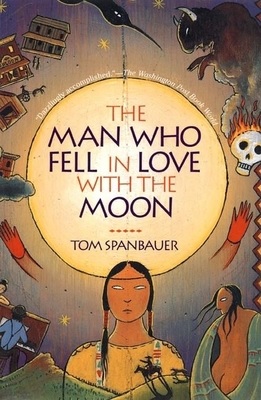 Author Tom Spanbauer, best known for his cult classic, The Man Who Fell in Love with the Moon, and his award-winning final novel, I Loved You More, as well as his long-running Dangerous Writing workshop, died September 21 at age 78.
Author Tom Spanbauer, best known for his cult classic, The Man Who Fell in Love with the Moon, and his award-winning final novel, I Loved You More, as well as his long-running Dangerous Writing workshop, died September 21 at age 78.
Born in Pocatello, Idaho, he attended Idaho State University and Columbia, and was also a member of the Peace Corps in Kenya. He returned to Idaho until 1978, when he moved to New Hampshire, then Vermont, then Key West, Fla. Eventually he landed on the Lower East Side of New York, where he began writing stories. He earned his MFA at Columbia University in 1988.
As a gay man in 1980s Key West and New York, he outlived the AIDS epidemic and detailed its devastation in his third novel, In the City of Shy Hunters, a story he believed it was his solemn duty to tell, but was much bigger than sickness.
"Shy Hunters is as much about AIDS as Romeo and Juliet is about teen suicide," he wrote. "Shy Hunters is the story of a man searching for his lost love in a world that has gone mad, but it is also an homage to my beloved New York City and to try to tell of the days of the plague and the horror that gay men went through." His other books include Faraway Places and Now Is the Hour.
In 2002, at a Ghost Dance in Wolf Creek, Ore., he met Michael Sage Ricci, who would be his spouse and partner of 22 years. Ricci said that Spanbauer's stories "have always been about him finding family, finding the characters of his heart, and he created such families. All those queer kids who had no family, he gave them (The Man Who Fell in Love with the Moon's) Shed and Ida and all of those characters."
Spanbauer's impact on the literary world reached far beyond the pages of his books, influencing a lineage of writers and students who continue to publish, teach, and pass on his philosophy and language.
In 1991, shortly after the publication of The Man Who Fell in Love With the Moon, he moved to Portland, Ore., where he began teaching Dangerous Writing at his dining room table. The workshop continued for more than 25 years in his home and around the world.
The Dangerous Writing workshops produced hundreds of writers who consider what they learned to be "basement table MFAs." More than 50 of his students went on to publish novels and memoirs, most famously Chuck Palanuik, who wrote Fight Club and Invisible Monsters during his five years in the workshop.
Spanbauer won the 2015 Lambda Literary Award in the gay general fiction category for I Loved You More. The same year, he won the Stewart H. Holbrook Literary Legacy Award, from Literary Arts in Oregon. He was also the winner of the 1992 Pacific Northwest Booksellers Association Award for best fiction.
In one of his last essays, Spanbauer wrote: "Given all the weirdness of being raised in rural Idaho in the '50s, though, I've got to say that walking the mile home after changing the water (irrigating) on a summer evening--that long solitary walk at sunset down the dusty roads through the sugar beet fields, the alfalfa fields, the barley and wheat fields, was something close to a miracle. Really the connection I felt to the sky and to the earth and to the water created in me a feeling of being connected to an abiding deep mystery.
"Idaho: such an enigma. But isn't that what home is?
"The dreaded place where your heart sings."


